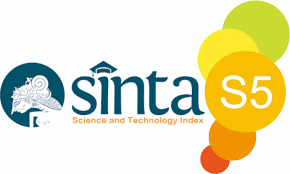PENGARUH CYBERLOAFING, EMOTIONAL EXHAUSTION DAN JOB BURNOUT TERHADAP INOVASI INDIVIDU PADA PEGAWAI DI KABUPATEN ROKAN HULU
DOI:
https://doi.org/10.30606/cano.v13i02.3610Keywords:
Cyberloafing, Emotional Exhaustion , Job Burnout, individual innovationAbstract
This study investigates the combined effects of Cyberloafing, Emotional Exhaustion, and Job Burnout on individual innovation. A quantitative research approach was employed, targeting a population of 1,217 employees in Rokan Hulu Regency. The study used random sampling to select a sample of 99 participants. Data were analyzed using descriptive statistics and multiple linear regression analysis. The analysis produced a regression equation of 9.745 + 0.118X1 + 0.150X2 + 0.723X3, with a determination coefficient (R) of 0.526. The findings indicated that, individually, the impact of X1 (Cyberloafing) and X2 (Emotional Exhaustion) on Y (individual innovation) was not significant. However, X3 (Job Burnout) showed a significantly positive effect on Y (individual innovation). When considered together, the three variables were found to significantly influence individual innovation.
Downloads
References
Choi, S., Cheong, K. J. (KJ), & Feinberg, R. A. (2018). Moderating effects of supervisor support, monetary rewards, and career paths on the relationship between Job Burnout and turnover intentions in the context of call centers. Managing Service Quality, 22(5), 492–516. https://doi.org/10.1108/09604521211281396
Kumajas, T. G., Pio, R. J., & Asaloei, S. (2023). Pengaruh Work From Home Dan Burnout Terhadap Kinerja Karyawan PT. Samudera Mulia Abadi Manado. Productivity, 4(6), 762-767.
Liao, S., Fei, W.-C., & Chen, C.-C. (2007). Cyberloafing, absorptive capacity, and innovation capability: an empirical study of Taiwan’s knowledge-intensive industries. Journal of Information Science, 33(3). https://doi.org/10.1177/01655515060707
Lim, P. K., Koay, K. Y., & Chong, W. Y. (2021). The effects of abusive supervision, Emotional Exhaustion and organizational commitment on Cyberloafing: a moderated-mediation examination. Internet Research, 31(2), 497–518. https://doi.org/10.1108/INTR-03-2020-0165
Luthans, F. (2017). Organizational Behavior : Organizational Contexts. In Contexts (13th ed.). McGraw-Hill.
Monica, I., & Mahaandirani, A. (2020). The Effect of Cyberloafing on Employee Performance Through Job Satisfaction and Work Commitment. Jurnal Ilmiah Manajemen, 8(4), 491–502.
Palla, A., Sukri, M., & Suwarsi, S. (2018). Faktor-faktor yang berhubungan dengan tingkat kecemasan pasien pre operasi. JIKP Jurnal Ilmiah Kesehatan Pencerah, 7(1), 45-53.
Sani, M. P., & Suhana. (2022). Pengaruh Beban Kerja, Burnout, dan Komitmen Organisasi Terhadap Perilaku Cyberloafing (Studi Pada PT. ABC di Kabupaten Kendal). Jurnal Mirai Management, 7(2), 286–305.
Saunders, M., Lewis, P. & Thornhill, A. (2016) Metode Penelitian untuk Mahasiswa Bisnis. Edisi ke-7, Pearson, Harlow.
Slamet, R., & Wahyuningsih, S. (2022). Validitas dan reliabilitas terhadap instrumen kepuasan kerja. Aliansi: Jurnal Manajemen dan Bisnis, 17(2).
Sugiyono. (2014). Metode Penelitian Pendidikan Pendekatan Kuantitatif, Kualitatif dan R&D. Alfabeta.
Vanderson et al. (2024) Pengaruh Kontrol Diri, Cyberloafing, dan Motivasi Kerja terhadap Kinerja Karyawan Gen Z di Kota Yogyakarta. Jurnal Manajemen dan Sains, Vol 9, No 1: April, 543-549
Downloads
Published
How to Cite
Issue
Section
License
Copyright (c) 2024 Devi Novianti , Hendry Kurniawan

This work is licensed under a Creative Commons Attribution-ShareAlike 4.0 International License.

